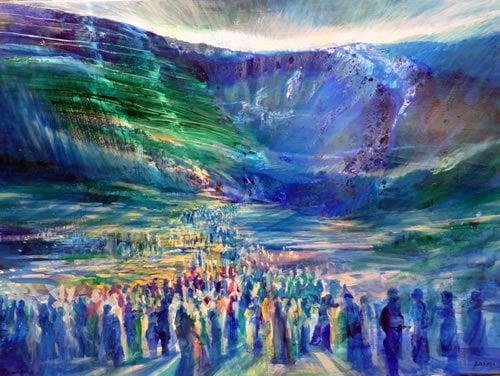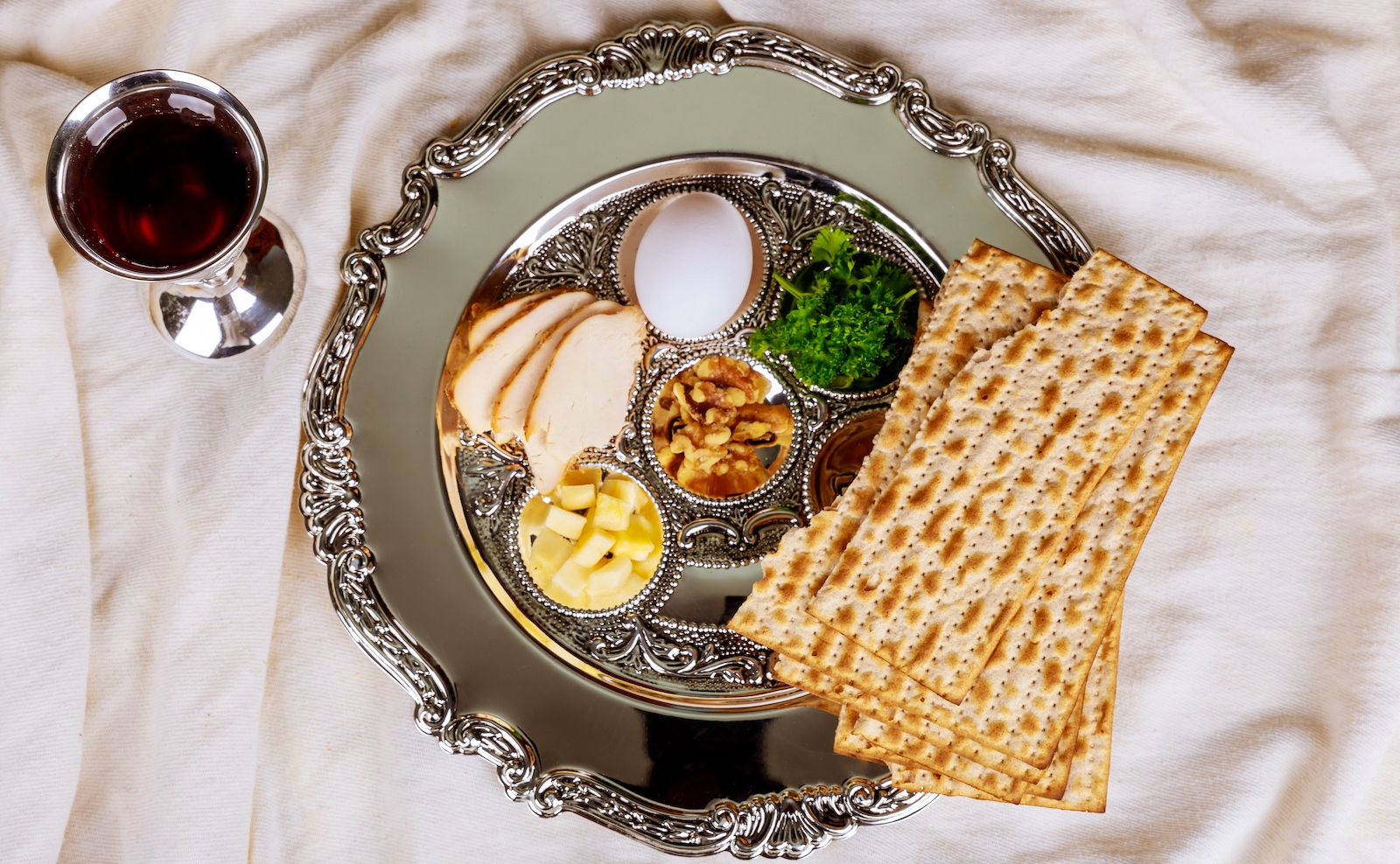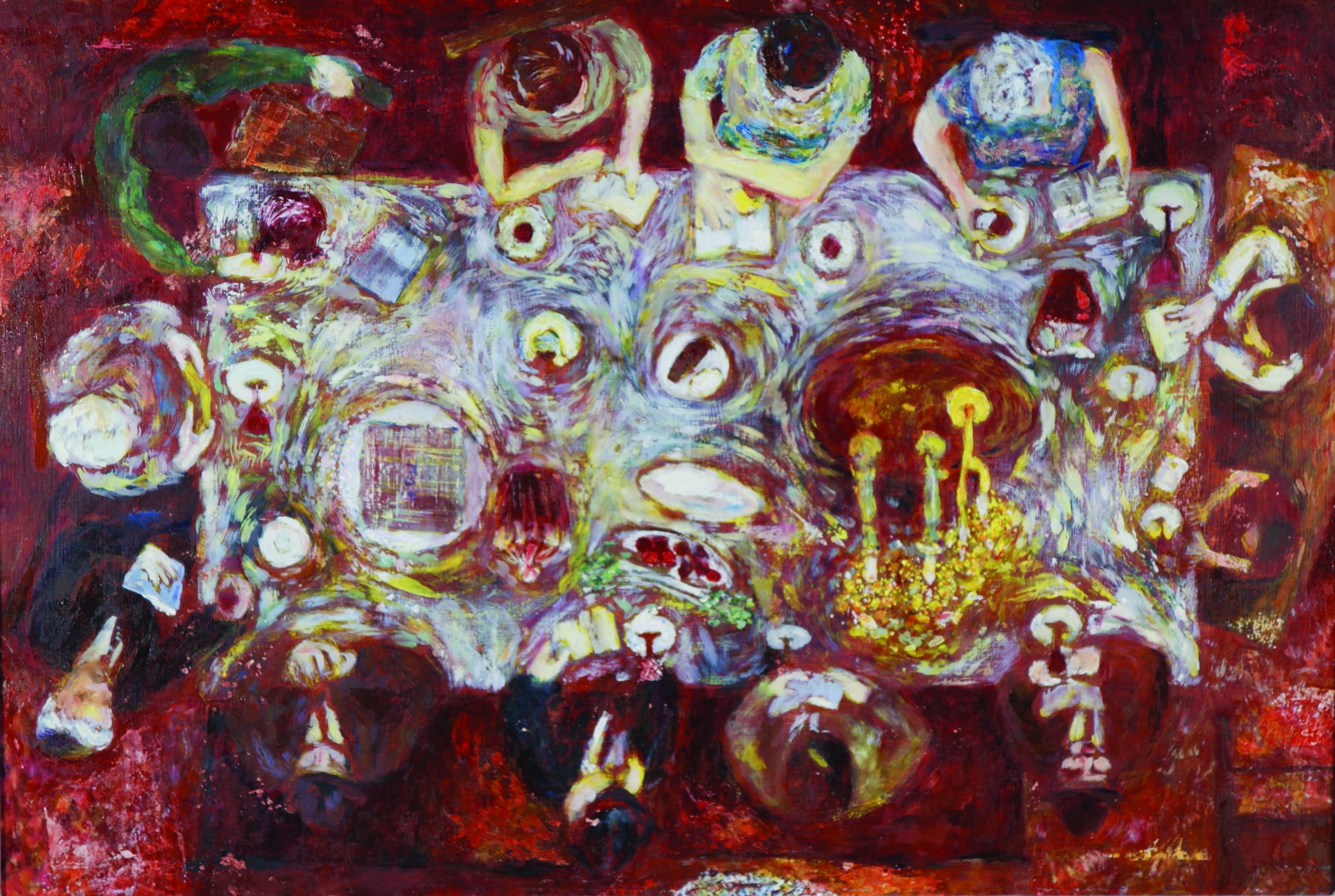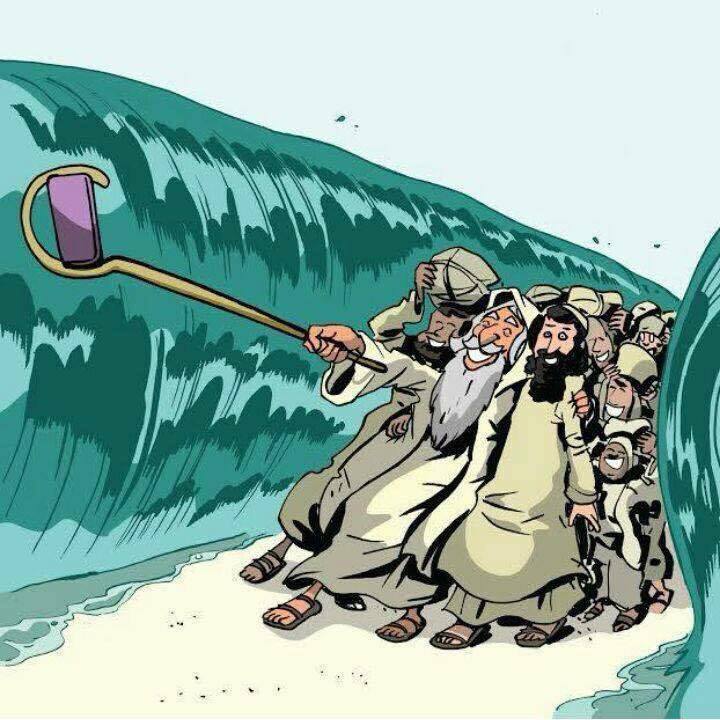Bonjour / Hello [nickname_else_first_name],
SEFIRAT HAOMER BOOKLET
Isaac Darwiche has put together this years booklet for Sefirat Haomer which can be found here
CLICK HERE TO DOWNLOAD
Counting of the Omer (Hebrew: סְפִירַת הָעוֹמֶר, Sefirat HaOmer, sometimes abbreviated as Sefira or the Omer) is an important verbal counting of each of the forty-nine days starting with the Wave Offering of a sheaf of ripe grain with a sacrifice immediately following the commencement (Hebrew: רֵאשִׁית, reishit) of the grain harvest, and the First Fruits festival celebrating the end of the grain harvest, known as Feast of Weeks/Shavuot/Pentecost in Mosaic Law (Hebrew Bible: Deuteronomy 16:9–12, Leviticus 23:10–16); or in the varying current Jewish holidays traditions, the period between the Passover or Feast of Unleavened Bread, and Shavuot. This is the second of the three annual Mosaic Law feast periods.
This mitzvah ("commandment") derives from the Torah commandment to count forty-nine days beginning from the day on which the Omer, a sacrifice containing an omer-measure of barley, was offered in the Temple in Jerusalem, up until the day before an offering of wheat was brought to the Temple on Shavuot. The Counting of the Omer begins on the second day of Passover (the 16th of Nisan) for Rabbinic Jews (Orthodox, Conservative, Reform), and after the weekly Shabbat during Passover for Karaite Jews, and ends the day before the holiday of Shavuot, the 'fiftieth day.'
- Wikipedia
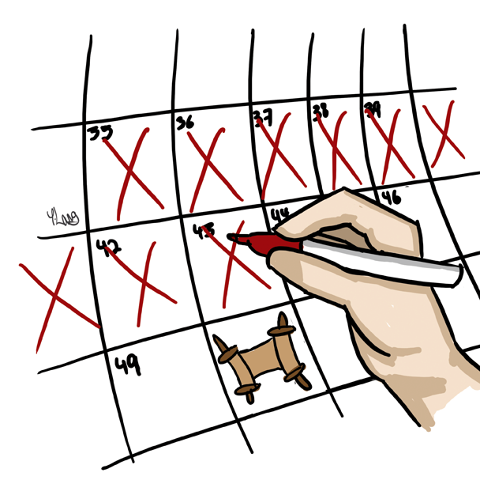
Table of contents
1) Perashat Hashavoua - Rabbi Eli Mansour
2) Halakhat Hashavoua (Halakhot related to day to day life) - From the archives - OMER
3) Holy Jokes!
1)PERASHAT HASHAVOUA
This Week's Parasha Insight with Rabbi Eli Mansour
Parashat Shemini: Caring for Our Sacred Soul
In Parashat Shemini, the Torah presents the basic guidelines regarding Kashrut, outlining which creatures are permissible and forbidden for consumption. This section begins with the words, "Zot Ha’haya Asher Tochelu" – "These are the animals which you may eat" (11:3).
Rashi, citing the Midrash, writes that the word "Haya" in this verse actually means "Hayim" – "life." He explains: "Since Yisrael are attached to the Almighty, and worthy of being alive, therefore, He separated them from impurity…" We have been elevated to a special spiritual status, whereby we are capable of "being alive" – meaning, earning eternal life in the next world. Therefore, G-d assigned us special laws which protect our souls from defilement. Rashi proceeds to reference the Midrash’s analogy to two patients suffering from the same condition who come to a doctor. The doctor tells one patient that he can eat anything he wants, but prescribes a strict diet for the second. He explains to the second patient that the first patient in any event will not recover from his condition, so he may eat anything he wishes, but the second can recover if he cares for his wellbeing. Similarly, the Midrash says, Am Yisrael has been granted a special soul which can be deserving of eternal life in the next world, and we must therefore guard and care for that soul by avoiding spiritually harmful foods.
Rav Eliyahu Bakshi-Doron (1941-2020), former Sephardic Chief Rabbi of the State of Israel, added that this explains the connection between this section, the laws of forbidden foods, and the other topics discussed in Parashat Shemini. This Parasha begins with a description of the events that took place on the day the Mishkan was inaugurated, when G-d took residence among the Jewish Nation. This marked the fulfillment of G-d’s promise back in the Book of Shemot (25:8), "They shall make for Me a sanctuary, and I shall reside in their midst." The Shechina’s residence among Am Yisrael testifies to their elevated soul, to their special stature, on account of which G-d seeks to dwell among them.
Later in the Parasha, G-d presents the command forbidding the Kohanim from drinking wine before entering the Mishkan to serve. Rav Bakshi-Doron explains that this command was presented here as an introduction, of sorts, to the laws of forbidden foods. The effect that alcohol has upon a person’s mind and conduct demonstrates that food and beverages can impact a person not only physically, but also spiritually. At first, we might have wondered why a special dietary code is necessary for our spiritual wellbeing. After all, eating is a physical act, which affects only the body. Why do we need to refrain from certain foods to protect our soul? The Torah preempted this question by introducing the section of forbidden foods with the law prohibiting drinking wine before entering the Mishkan to serve. The fact that alcohol impairs a person’s judgment and leads him to act differently than he normally does, shows that food has an effect not only on the body, but also on the soul. And thus G-d gave us special restrictions on which foods we are allowed to ingest, to ensure that we carefully guard and protect our most precious and important possession – our sacred soul.
May we all remain cognizant at all times of this most precious asset, and see to it that we protect it, nurture it and cultivate it by devoting ourselves each day to Torah and Misvot, to the very best of our ability.
2) HALAKHAT HASHAVOUA
From the Archives
OMER
The Sefirat (counting) Ha-Omer lasts 49 days (7 weeks ) . We starts counting on the 2nd day of Pesach till one night before Shabuot.There are
different customs during that period regarding Cutting Hair,Weddings,Music,and more.The Sephardim do not take hair cuts or in some instances shave, till the 34th day of the Omer unlike the Ashkenazim who takes hair cut & shave on the 33rd day,which is Lag Baomer.This Avelut (Mourning)period is based on the death of 24000 students of Rabbi Akiba.For ladies,it is our custom not to be Mahmir(stringent)on taking hair cuts during Sefirat Ha-Omer,they are allowed to take a hair cut.Ladies also should not make Sefirat Ha-Omer,not with or without the Berakha(blessing),as per Ben Ish Hay,he explains that according to Kabala,there is no reason for Ladies to count at all,the Kaf Hachayim and other Hakhamim come down with the same opinion.
As per Sephadic customs also,one should not make weddings until the night of the 34th of the Omer ,the same as the hair cut rule.It is also a good custom not to go swimming , take dangerous risks, or listen to music till Lag Ba-Omer ,which is the day of the Hilulah(tribute)of Rabbi Shimeon Ben Yuhay,Z"L.So we do celebrate that day as a Holiday,because of the impact of Rabbi Shimeon,Z'L.and his Zohar.The books bring down how you are suppose to enjoy that 33rd day of the Omer,so we d listen to Kosher music Likhbod(in Honor) the Hilula of Rabi Shimeon Ben Yuhay.Z"L.
Bejamin Khadoury z'L
3) HOLY JoKeS!!
Selection of funny snippets, loosely related to this weeks parashah or current events, to brighten your day
A poor man finds God while walking through a forest.
“God, what is a million years like for you?”
“My son, for me a million years is like a second.”
“God, what is a million dollars to you?”
“My son, a million dollars means nothing to me.”
“So God, can I have a million dollars?”
“In a second.”
How did Moses split the Red Sea?
With a "sea"saw.
What method does the Australian god use to part the Red Sea?
Oz Moses.
At the Henry Street Hebrew School, the rabbi finished the day’s lesson. It was now time for the usual question period.
“Rabbi,” little Melvin asked, “there’s something I need to know.”
“What’s that, my child?” the rabbi asked.
“Well, according to the Scriptures, the children of Israel crossed the Red Sea, right?”
“Right.”
“And the children of Israel beat up the Philistines, right?”
“Uh—right.”
“And the children of Israel built the temple, right?”
“Again you are correct.”
“And the children of Israel fought the Egyptians, and the children of Israel were always doing something important, right?”
“All that is correct,” the rabbi said. “So what’s your question?”
“What I need to know is this,” Melvin said. “What were all the grown-ups doing?”






